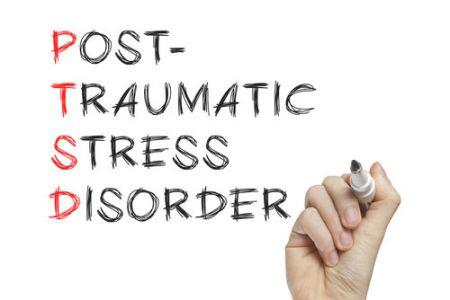Experiencing or simply witnessing a frightening, stressful or shocking event can be more than an unpleasant occurrence to some people, where in certain cases, even time is insufficient to get rid of the racks and ruins of the past. Harsh car accidents, natural disasters, witnessing violent deaths, sudden death of beloved ones, sexual assaults, wars, terrorist attacks, etc., can be psychologically overwhelming to the extent that some people will encounter nightmares, flashbacks, distorted feelings such as guilt or blame, negative thoughts, memory and sleeping problems; in addition, they will strive to avoid places, people or activities that bring memories of the traumatic event. And when the mentioned symptoms last for a long period of time (more than a month) and impede the individual’s social life and productivity, then the anxiety disorder, “Post-Traumatic Stress Disorder (PTSD)”, is the most probable diagnosis.
The recognition of PTSD took place in the year 1980, thus, the optimal therapy for this disorder is still under investigation and the debate over the best way to treat it continues. Several psychotherapeutic treatments are available such as cognitive therapy where negative thoughts are defied or exposure therapy entailing the controlled re-experiencing of the trauma, which are usually accompanied with the intake of antidepressants. However, this combination is not as effective as it was expected to be, and patients either quit before finishing the treatment, or even avoid it at the first place.
For that reason, alternative therapies emerged, and the positive results obtained by new studies encouraged a rising number of psychotherapists to believe in the power of such approaches in reducing anxiety and depression. These therapies have no side-effects and make use of each and everything in the environment to cure psychologically destructed patients. Fishing, rafting, backpacking trips, horseback riding, yoga, scuba diving, interaction with dolphins and parrots, etc., are not only hobbies, but also treatments that are capable of doing what medications and psychiatrists cannot.
Parrots & Dolphins: Unconditional Devotion
Pet parrots that are taken out of their natural habitat, and then abandoned by their owners, become psychologically devastated and traumatized. The reason behind this is the close connection that these creatures make with other living beings, from parrots to humans. So, the interaction of PTSD patients with orphaned pet parrots helps them in conquering their trauma. Knowing about the benefits that this experience brings to patients is new to some of us, yet it is not surprising in any way since parrots are sociable and intelligent creatures, with cognitive capacities similar to children in the age of four to five years.
A success story for this approach is the Serenity Park Parrot Sanctuary, established by a psychologist in Los Angeles, which aims to rescue orphaned pet parrots on one hand, and help United States military veterans to overcome the symptoms associated with PTSD on the other. In this park, veterans are given the chance to take care of traumatized pet parrots. This interaction with orphaned parrots helps them with their recovery.
Similar outcomes are obtained with dolphin therapy, which further ensures the great impact of animal-assisted therapy on human’s psychology. Dolphins, just like parrots, are both intelligent and friendly.
Scuba Diving: One-of-a-kind Experience
Several studies highlighted the positive mental and physical effects of scuba diving, and this has made it part of the treatment procedure for PTSD patients, especially military veterans. Scuba diving, in addition to other relaxing activities, can boost the confidence and mood of patients and divert their center of focus from thinking about bad memories to learning new skills. Therefore, scuba diving was reported to treat patients with PTSD or other mental conditions, and help in their psychological improvement even after the termination of the treatment. Adding to this, scuba diving helps in preventing the suicidal behavior that patients suffer from.
Conclusion
Scientific evidence that supports the true benefits of alternative therapies is in many cases little or not even existing. The reasons are the lack of funding for researches and the challenge associated with assessing such treatments when compared with medications for instance. Yet, these activities bring no harm to patients, who are responding positively to alternative therapies. It is vital to point out that self-empowering outside-the-office therapies, when accompanied with psychotherapy, have proven to be much more effective than traditional approaches.
PTSD patients should be helped to adopt a life skill or hobby that helps them in overcoming their fears, depression and anxiety. Their remedy is easier than they ever thought, and closer than ever. It is in their environment!











